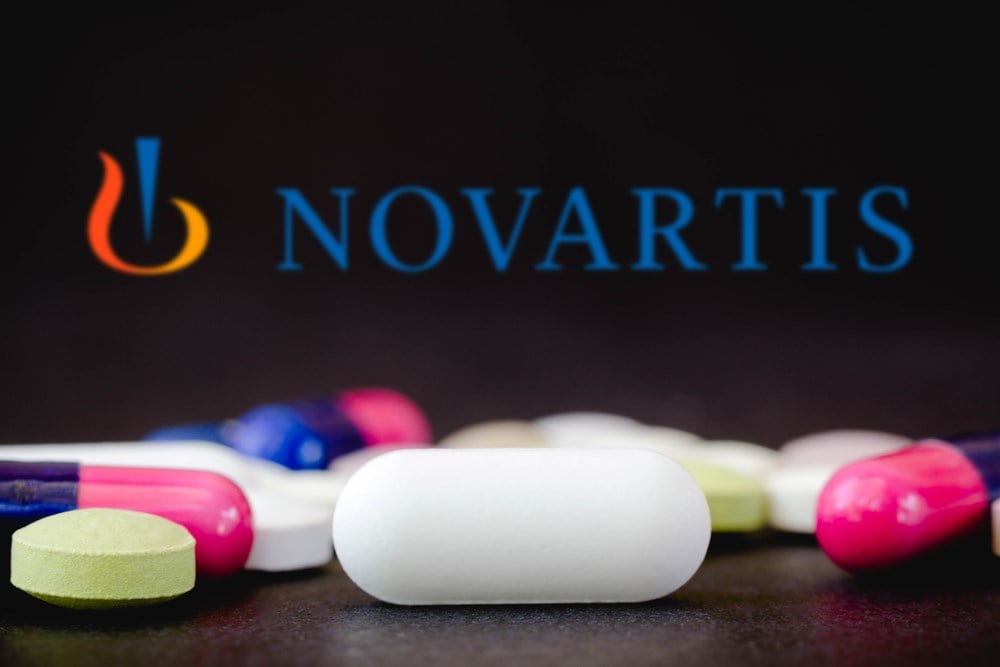Novartis Stock Screams Value After Chinook Therapeutics Buyout Following a buyout of Chinook Therapeutics, Novartis slipped less than 1%. This speaks to the growth potential of Chinook and ongoing value of Novartis stock.
This story originally appeared on MarketBeat

Don't be fooled by the fact that Novartis AG (NYSE:NVS) is trading near an all-time high. The Swiss pharmaceutical giant is still a good value.
That value proposition took a huge step forward on Monday when Novartis announced a $3.2 billion acquisition of Seattle-based biotechnology company Chinook Therapeutics. A specialist in the development of precision medicines for chronic kidney diseases, Chinook Therapeutics becomes the latest addition to Novartis' expanding innovative medicines portfolio. Less than two years ago, the company bought out gene therapy businesses Gyroscope Therapeutics and Arctos Medical.
The addition of Chinook Therapeutics is part of a strategic shift away from generic pharmaceuticals and towards the development of unique, tech-driven treatments for a range of rare and serious diseases. In August 2022, Novartis unveiled a plan to spin off its less profitable Sandoz generics business in conjunction with a broad restructuring. However, with profits on the decline at Sandoz, Novartis has struggled to find a buyer.
With Novartis facing generics competition of its own, Chinook Therapeutics will help diversify the core innovative medicines business. Psoriasis treatment Cosentyx, which accounts for more revenue than any other Novartis drug, is seeing a wave of competition, as is the company's oncology portfolio.
From a Chinook Therapeutics shareholder perspective, the takeout is a great deal. Novartis' base offer of $40 per share represents a 67% premium from Friday's closing price — and comes with a $4.00 per share "contingent value right" that could make the deal worth $3.5 billion.
Often when a major drug manufacturer pays a big premium for less proven biotech, the market punishes the stock. And yet Novartis held up well, slipping less than 1% on the day of the news. This speaks to both the growth potential of Chinook Therapeutics and the ongoing value for Novartis shareholders.
What Does Chinook Therapeutics Bring to the Table?
Chinook Therapeutics has three product candidates that are currently in clinical trials. Its most advanced candidate, Atrasentan, a potential treatment for IgA nephropathy, is enrolling patients for a phase 3 trial. Atrasentan was previously developed by AbbVie for diabetic kidney disease and showed positive results in clinical trials.
Assuming the deal clears regulatory approvals and closes later this year as planned, Novartis will also be acquiring a pair of early-stage candidates:
- BION-1301: a second treatment for IgA nephropathy that's being evaluated in a phase 1/phase 2 trial after demonstrating good safety and tolerability;
- CHK-336: a first-in-class oral inhibitor for the treatment of hyperoxaluria that has shown encouraging preclinical results.
With topline data expected in the second half of this year, Atrasentan is the biggest near-term growth opportunity for Novartis. According to the Centers for Disease Control (CDC), kidney diseases, including nephropathy, are the leading cause of death in the U.S. — and are significantly undiagnosed. With Travere Therapeutics' Filspari the only FDA-approved drug for IgA nephropathy, Chinook's potential to serve millions of Americans with kidney disease is large.
What Makes Novartis a Good Value Stock?
Last week, Sandoz held a Capital Markets Day where it presented itself to be a "compelling investment" as a standalone entity, touting future sales and free cash flow growth. It remains to be seen if any bidders come along, so for now Novartis has to be valued as the combination of its generics and innovative medicines businesses.
Based on Wall Street's earnings per share (EPS) estimates for the next four quarters, Novartis has a forward P/E ratio of 14.5x. This makes the American Depository Receipt (ADR) inexpensive from two angles: 1) the five-year average P/E on Novartis is 16x and 2) the forward P/E on the S&P 500 is 19.5x.
Of course, consensus EPS estimates could increase significantly if Chinook's phase 3 candidate advances to the commercial stage. This could make Novartis shares even cheaper — and one of the best ways to gain exposure to breakthrough medicines for not only kidney disease but oncology and other large markets.
The Novartis value proposition also includes a 3.5% forward dividend yield that's more than twice that of the average healthcare stock. The growth that could come with Chinook's pipeline is icing on the cake.









